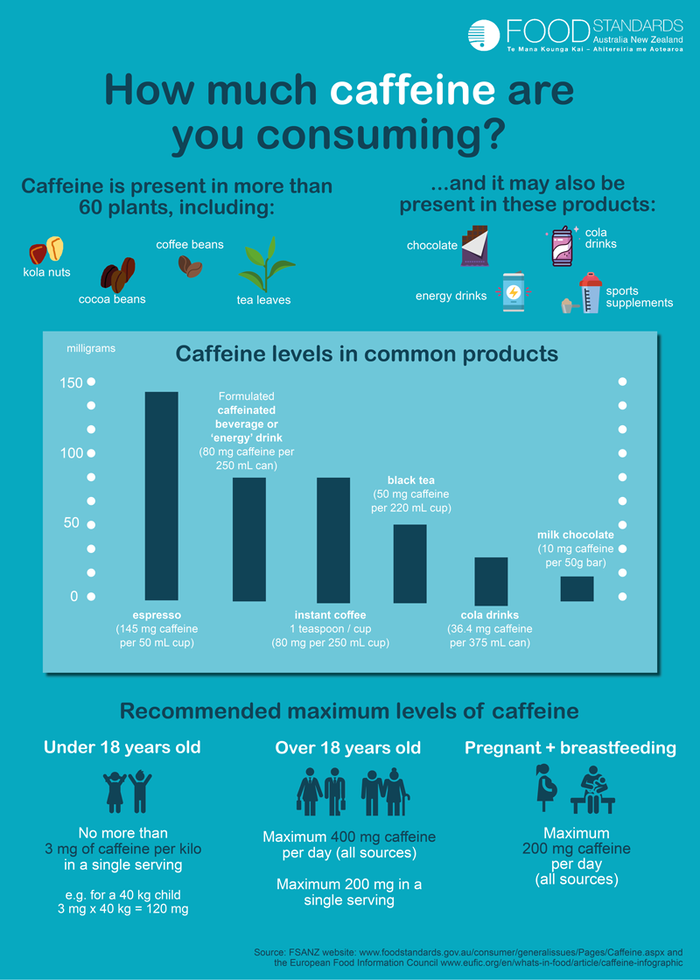Caffeine occurs naturally in foods, such as coffee, tea and cocoa and has a long history of use as a mild stimulant. Products are also available with added caffeine, including cola-type soft drinks and formulated caffeinated beverages (energy drinks).
Some caffeine products are not considered safe for consumption and have been banned in Australia and New Zealand. These products usually come in the form of powders and syrups and are typically marketed as sports supplements.
Caffeine content of some food and drinks:
Is there a safe limit for caffeine?
There is no recognised health-based guidance value, such as an Acceptable Daily Intake, for caffeine. However, a FSANZ Expert Working Group analysed the available literature in 2000 and concluded that there was evidence of increased anxiety levels in children at intakes of about 3 mg of caffeine per kilogram of bodyweight per day. This amount for children aged 9-13 corresponds to a caffeine intake of 120 mg per day (approximately two cans of cola) and about 240 mg per day (approximately three cups of instant coffee) for adults.
How is caffeine regulated?
The Food Standards Code restricts how much caffeine can be added to cola-type soft drinks and energy drinks. Foods containing added caffeine must also have a statement on the label that the product contains caffeine. Foods containing guarana (a South American plant with high levels of natural caffeine) must also be labelled as containing caffeine. This is to help people avoid caffeine either for themselves or their children.
In cola-type drinks, the total caffeine content must not exceed 145 mg/kg in the drink as consumed. Energy drinks are regulated under Standard 2.6.4 of the Code. It sets maximum permitted levels of caffeine and other substances in these products (the maximum amount of caffeine they can contain is 320 mg per litre). This Standard includes additional labelling requirements advising the products are not suitable for young children, pregnant or lactating women and individuals sensitive to caffeine.

